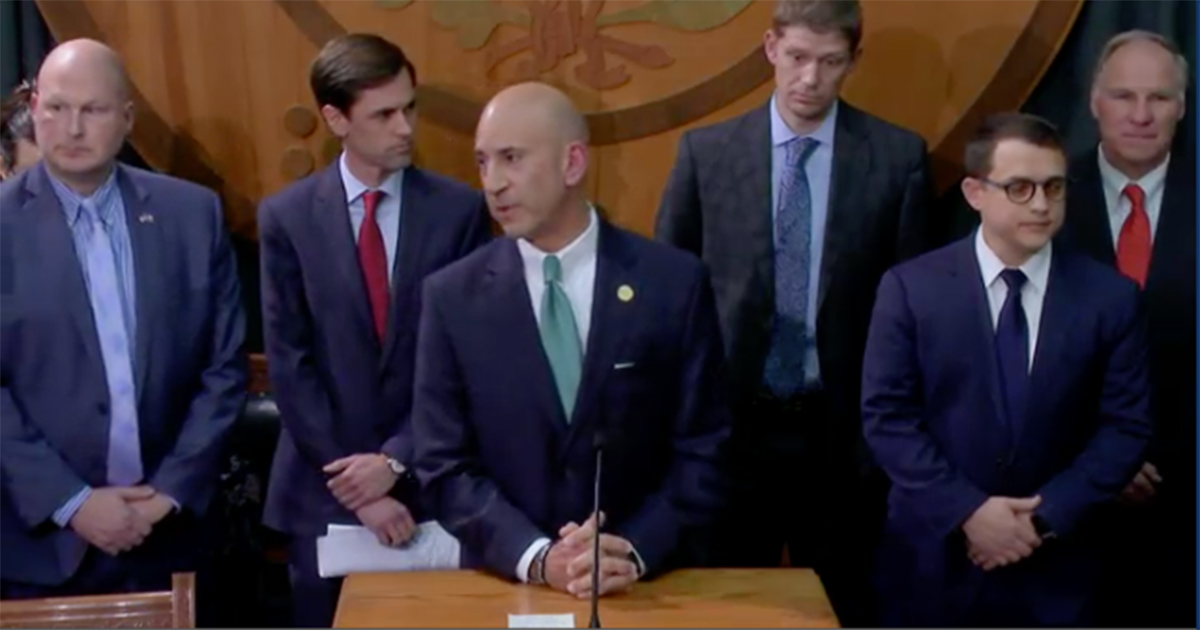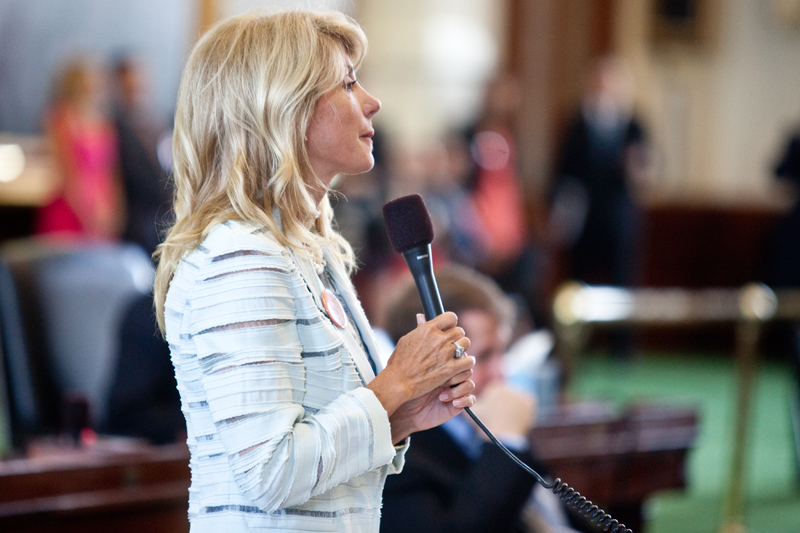
Wendy Davis’ Reproductive Rights Conundrum

A version of this story ran in the March 2014 issue.
Wendy Davis is in a precarious position. The same issue that catapulted her to fame—women’s reproductive rights—and made her the most exciting Democratic candidate for governor in a generation also has the power to alienate moderate voters. How she handles this quandary could determine her success in a deeply conservative state that’s historically tough on women.
In 1990, when I was voting for the first time, Ann Richards became governor by narrowly defeating a man who felt comfortable making a rape joke in front of a reporter. Even then, Richards won only 49.5 percent of the vote to Clayton Williams’ 46.9 percent.
Still, with a woman as governor, I naively assumed that by the time I reached middle age, sexism would be all but gone from the Texas political landscape. Imagine that.
Sadly, not only are things just as difficult for female politicians today, they’re worse for the average Texas woman. Over the last few years, conservatives have forced Texas women into a corner with transvaginal probes and worse. They’ve reduced access to low-cost reproductive health care and forced those who can afford an abortion provider to undergo medically unnecessary sonograms, 24-hour wait periods and sanctimonious descriptions of the fetus. Prominent conservative commentators—RedState.com’s Erick Erickson prime among them—gleefully refer to Davis as “Abortion Barbie.” It’s no wonder that a liberal backlash is happening and that it’s rallying around the issue of women’s health care.
Davis’ 11-hour filibuster to block anti-abortion legislation in the Texas Senate in June was one of the defining feminist moments of the last decade. It also shocked the near-comatose Lone Star Democrats into relevancy again. As with Ann Richards, Davis’ most passionate supporters are the women who are inspired by her feminist acts and the men who love those women. But that’s certainly not enough to win a statewide race in Texas.
So how does Davis continue to expand her base while staying true to the issues that galvanized liberals? How does she do that in a state where the governor casually vetoed a fair-pay bill with broad bipartisan support? That bill, the state version of the Lilly Ledbetter Fair Pay Act, would have extended the time Texas women have to file a pay-discrimination suit.
Davis can’t turn her back on women and reproductive rights. But she can frame the issue differently. After the fair-pay bill died, the Houston Chronicle uncovered letters from retailers like Kroger and Macy’s urging Rick Perry to veto the bill. This casts the situation not only as a women’s issue, but as a case of big business vs. working people.
In contrast to Davis, who was the bill’s sponsor in the Senate, Greg Abbott has stayed quiet on the issue. When questioned at the Texas Tribune festival in September 2013 whether he supports equal pay for women, he said he would “fight any discrimination,” but declined to specify whether he would support a bill. In an interview with WFAA on Sunday, Abbott again refused to say whether he would sign a fair pay bill into law, instead insisting that as a father of a daughter he “fully expects that women to be paid the what men are paid.”
The Republicans’ record of selling out consumers to big business could cause them trouble if Davis plays it right. She’s already calling for the removal of Cash America Vice President Bill White from the Texas Finance Commission—a situation that puts a predatory lender in charge of protecting consumers.
Davis’ defining issue of reproductive rights can also be viewed through a fiscal lens. A woman forced to have a baby she can’t afford is stuck in economic hardship. She may have to forgo an education to support her child. She may be trapped in an abusive marriage to keep ties with a breadwinner. She may become a drain on the state because of subsidies required to feed and house her family. No one expects a man to surrender to poverty or economic dependence. Why should we expect a woman to?
Wendy Davis may always be associated with the abortion debate, and there will certainly be Texans who vote against her because of it. But she can attract moderate voters without alienating her liberal base if she casts the issue of women’s rights in economic terms. As we’ve learned the hard way, in Texas, money talks.
To support journalism like this, donate to the Texas Observer.
